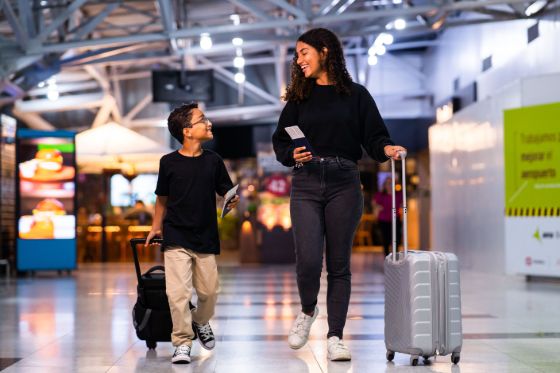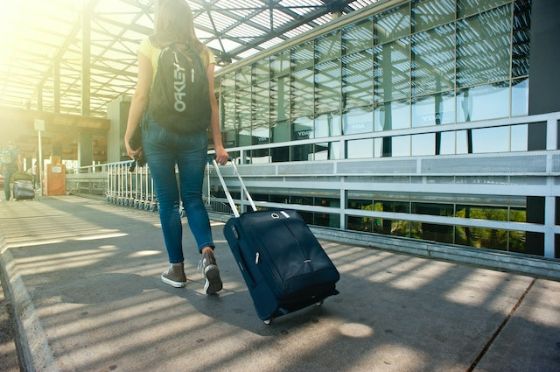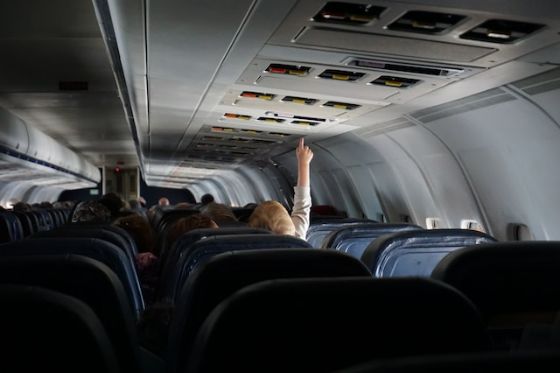

Traveling with kids can be an adventure. However, there may be a time where your child needs to travel without you. Whenever a child under the age of 18 is traveling alone, there are certain rules and procedures you need to follow. When an unaccompanied minor travels internationally, there are even more things to consider.
As a parent of young children and someone who traveled solo internationally as a child, myself, I can attest: planning is everything. Getting the details right can make the difference between a positive experience for your child and a nightmare.
This guide provides the most important details for supporting a child traveling abroad without an adult chaperone.
Knowing the governmental, airline, and airport policies is the first step to a successful trip abroad. This is especially true for a child traveling without a parent or guardian.
It all starts with a passport. Any American citizen traveling outside of the United States needs a valid U.S. Passport. It doesn't matter what the traveler's age is.
Getting a passport for a minor is not that different from getting a new passport for an adult. That said, if the person who needsa passport is under the age of 16, there are some additional steps that need to be followed. Most of these have to do with establishing parental and/or guardianship rights.
For more on this topic, our Passports for Minors FAQ covers some of the most common questions we have received on the topic over the past two decades.
In addition to a passport, having a notarized minor travel consent form is essential. This official document will ensure the airline and customs officials have access to critical information about your unaccompanied child.
In the event of any confusion or travel itinerary mishap, this document could prove to be the key to keeping your child safe. It gives airline personnel and customs officials the information they need to get the child to whom and to where he or she is supposed to be.

The U.S. Department of Transportation has some general guidelines for unaccompanied minors flying on planes. Airlines are free to interpret them as they wish, but most follow them pretty closely.
Some of the key guidelines include:
Again, these policies may be stricter depending upon individual airline policies. Some airlines ban this outright. Others extend this age limit to 14 years of age.
Children age 12 through 17 may be subject to the same or fewer restrictions as the 8 to 11 age group. For domestic flights, most airlines will only provide unaccompanied minor accommodations for this age group upon request. However, international travelers under the age of 18 are usually required to pay an unaccompanied minor fee.
Some carriers will not permit minors of any age to fly abroad unaccompanied.
Follow the links below for the current unaccompanied minor policies for some of the most popular international airlines:
As a rule, most governments and companies (including airlines) have strict policies about medication. If your child requires medication, be sure to do your due diligence about what documentation and storage rules apply for all the locations your child will be traveling through. Do the same for any of the transportation and accommodation services they will be using to do so.
You should also be sure your child has the proper amount of medication for their trip. Both access to pharmacies and the usefulness of a prescription from an American doctor may vary outside of the country.
You should also consider if your child is able to administer their own medication. It should not be assumed that a flight attendant, customs official, or other adult will be willing or able to do so for your child. If this is an issue, consider reaching out to your child's doctor for advice or potential alternatives.

As mentioned, for airlines that allow minors to fly solo internationally, there is almost always an unaccompanied minor fee. These can range from $50 to over $200 depending on the airline.
In exchange for this fee, airlines provide some extra assistance for their young travelers:

There are extra steps you can take to make your child's international trip comfortable and safe.
1. How can you get a passport when you're in a hurry?
2. What exactly does a passport expediter do?
3. Are passport expediting services legitimate?
4. How can I identify a reliable passport expeditor?
5. Is expedited passport service worth it? Get answers to these questions and more in our Ultimate U.S. Traveler's Guide to Passport Expediters. You can also visit our library of articles about passport expediting.
About the Author: For over 20 years, the U.S. Passport Service Guide team has helped hundreds of thousands of travelers with their travel document questions and shared advice about how to make traveling abroad simpler, safer, and more enjoyable.